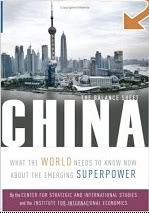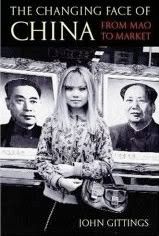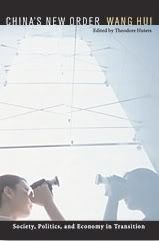Hu's 'State Visit'
Peter Kwong
The White House has downgraded Chinese President Hu Jintao's upcoming "state visit" to Washington to a simple "official visit," according to spokesman Scott McClellan. Hu will have lunch with President Bush rather than a formal dinner, the distinguishing feature of a state visit. Chinese officials, however, continue to insist the trip is a "state visit.'' The dispute indicates the White House's low expectations for the event and is the latest in a series of public spats between the two countries.
The American side felt slighted when China announced the purchase of 150 Airbus planes from European competitors only a couple of weeks after placing an order for seventy Boeing jets during Bush's last visit to Beijing. The Administration is also unhappy with China's reaction to the State Department's 2005 Country Reports on Human Rights Practices; the official Chinese statement declares that a government responsible for the Abu Ghraib prison abuses has no business disparaging others.
For its part, China is fuming over the Administration's continued efforts at "containment," the latest of which are far-reaching economic and military agreements with India aimed at countering Chinese influence in the region. Ironically, this is pushing some governments interested in trade with China to the other side. As one example, Australian Foreign Minister Alexander Downer distanced himself from Secretary of State Condoleezza Rice just before Rice's arrival in Sydney to attend a strategic alliance conference with her Japanese and Australian counterparts, stating publicly that his country does not "support [the American] policy of containment of China...[which] would be a very big mistake."
The question is how far the US-China relationship can deteriorate without grave consequences for the United States. Economic ties between the two countries could not be closer, with a quarter of America's consumer goods made in China. To relieve the US trade deficit, primarily the result of imports, China is recycling its export earnings by purchasing US Treasury bonds. This has the effect of holding down US interest rates, maintaining American consumer spending and sustaining the mammoth US budget deficit--in effect, helping to finance the war in Iraq.
American big business does not want such a deterioration in relations; China is, after all, its leading global "profit center." Tapping into China's huge market has long been the dream of every American businessman. Big businesses prefer to ignore China's human rights violations; typical is Google, which has launched a version of its site that strips out information not approved by Chinese authorities in order to operate there. Big business is also weary of Congressional "protectionist" threats to impose tariffs on Chinese imports unless China allows its currency to grow in value against the dollar. This protectionist game can cut both ways. After all, it is the Americans who have been lecturing the rest of the world about the virtues of free trade. Since joining the WTO, China has allowed considerably expanded foreign ownership of Chinese assets, but when a Chinese company tried to acquire UNOCAL, Congress cried foul in the name of a threat to US security. According to this logic, American multinationals have been violating the security of every nation on earth.
The deterioration of US-China relations could also have serious consequences for China, beset with internal contradictions. The benefits of prosperity have not reached rural areas, where three-quarters of China's 1.3 billion people reside. Millions are forced to leave their impoverished villages to find jobs as degraded laborers in urban centers. As the gap between the rich and poor widens, official corruption continues and the state uses ever harsher means to suppress dissent and organizing of any type, a simmering popular resentment is breaking out in a record number of riots and other manifestations of unrest.
Is destabilizing the Chinese Communist regime by humiliating its leaders and pursuing containment policies one of the goals of the Bush Administration's global "Democracy Project"? Elsewhere, the project is failing miserably: The attempt to democratize Iraq has ushered in a pro-Iranian, religious, Shiite-dominated government, and the attempt to do the same in Palestine has facilitated a Hamas victory.
If China becomes unstable, American big business won't sit still. The Bush Administration will be forced to intervene to protect investments by supporting the Chinese status quo, and America could again find itself propping up a dictatorial government. Ultimately, it is not the smartest move for the Administration to pull the red carpet from under Hu, when it is so mired in Iraq and desperately needs the Chinese to assist in constraining Iran and North Korea, the other two members of the "axis of evil."***
Peter Kwong, a professor of Asian American studies at Hunter College, is co-author of Chinese America: The Untold Story of America's Oldest New Community.
Link




0 Comments:
Post a Comment
Subscribe to Post Comments [Atom]
<< Home